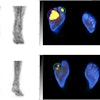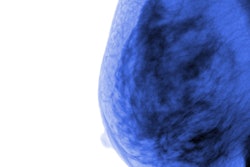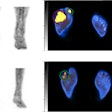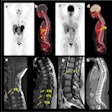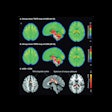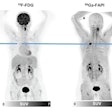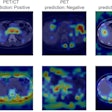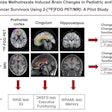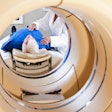Their study compared the performance of both systems at specific doses of technetium-99m (Tc-99m) sestamibi. Among the variables evaluated were sensitivity, uniformity, energy, and spatial resolution.
The MBI system demonstrated better spatial resolution than the breast-specific gamma imaging (BSGI) system when acquiring images in the range of 0 to 6 cm from the collimator, while achieving more than twice the sensitivity, the researchers found.
The findings suggest that patients may benefit from an MBI study in place of BSGI, because of improved breast lesion detection at clinically acceptable low radiation doses, study presenter Zaiyong Long, PhD, a diagnostic medical physics resident in Mayo's department of radiology, told AuntMinnie.com.
"This improved ability to detect breast lesions is due to two factors: The improved sensitivity of the MBI detectors allows them to be used at lower administered activities of Tc-99m sestamibi than the BSGI detectors, and the use of a dual-head configuration rather than a single detector head enables better visualization of breast lesions irrespective of their location within the breast," Long said.
The Mayo Clinic currently uses MBI for supplemental screening in women with difficult-to-image breasts.
"Unlike anatomical imaging technologies, such as mammography, tomosynthesis, or ultrasound, MBI can detect functional abnormalities in breast tissue that can be masked or obscured in mammographically dense breasts," Long added.
Mayo has been optimizing the MBI technology for more than 10 years and has completed two large screening trials that demonstrate its value as a supplemental screening tool.
"Going forward, the next stage of this work will involve a multicenter trial that evaluates a new screening regime that alternates annually between mammography and MBI," Long said. "We believe this will be as effective as a supplemental regime, and will be substantially more cost-effective."
